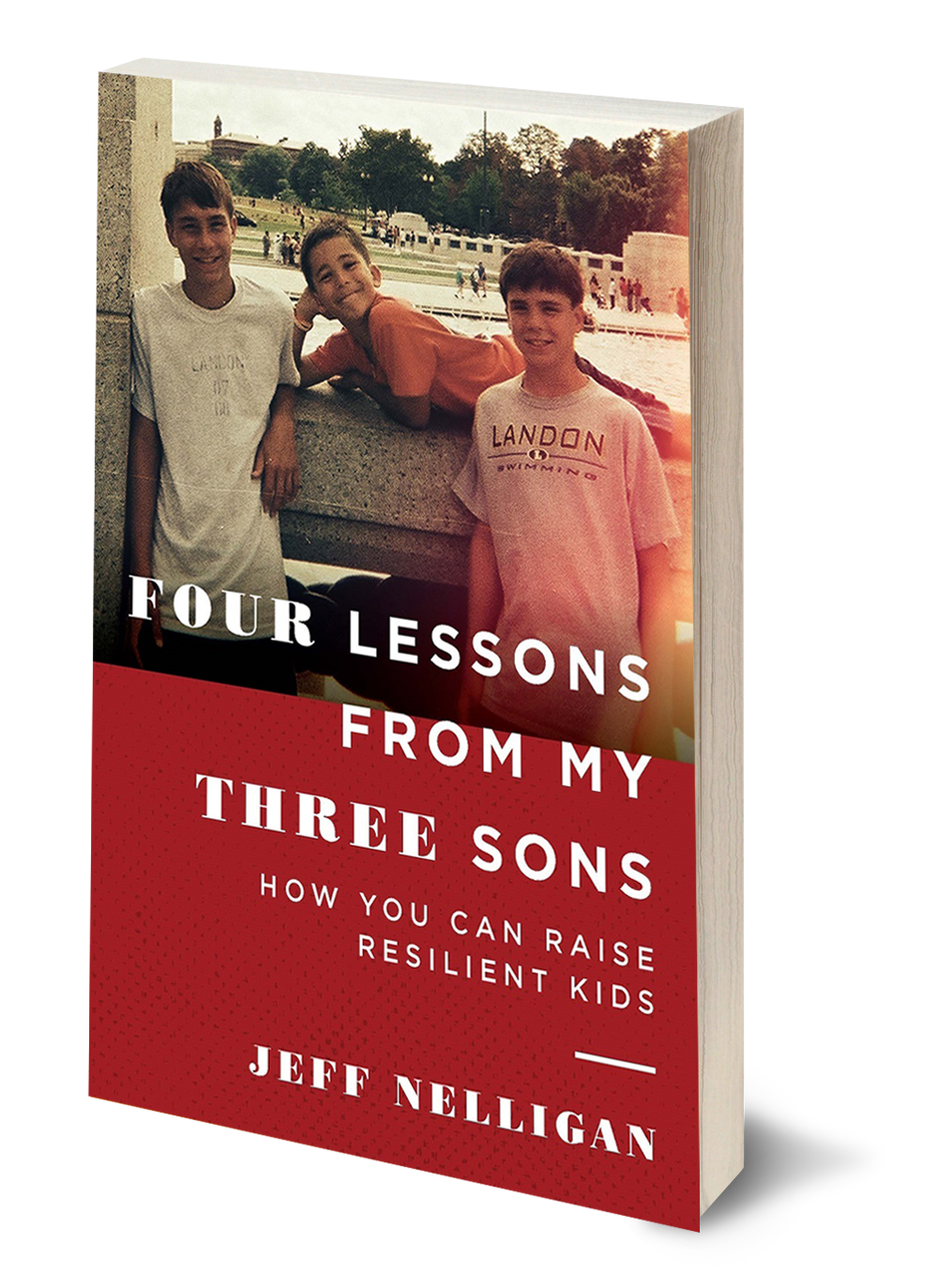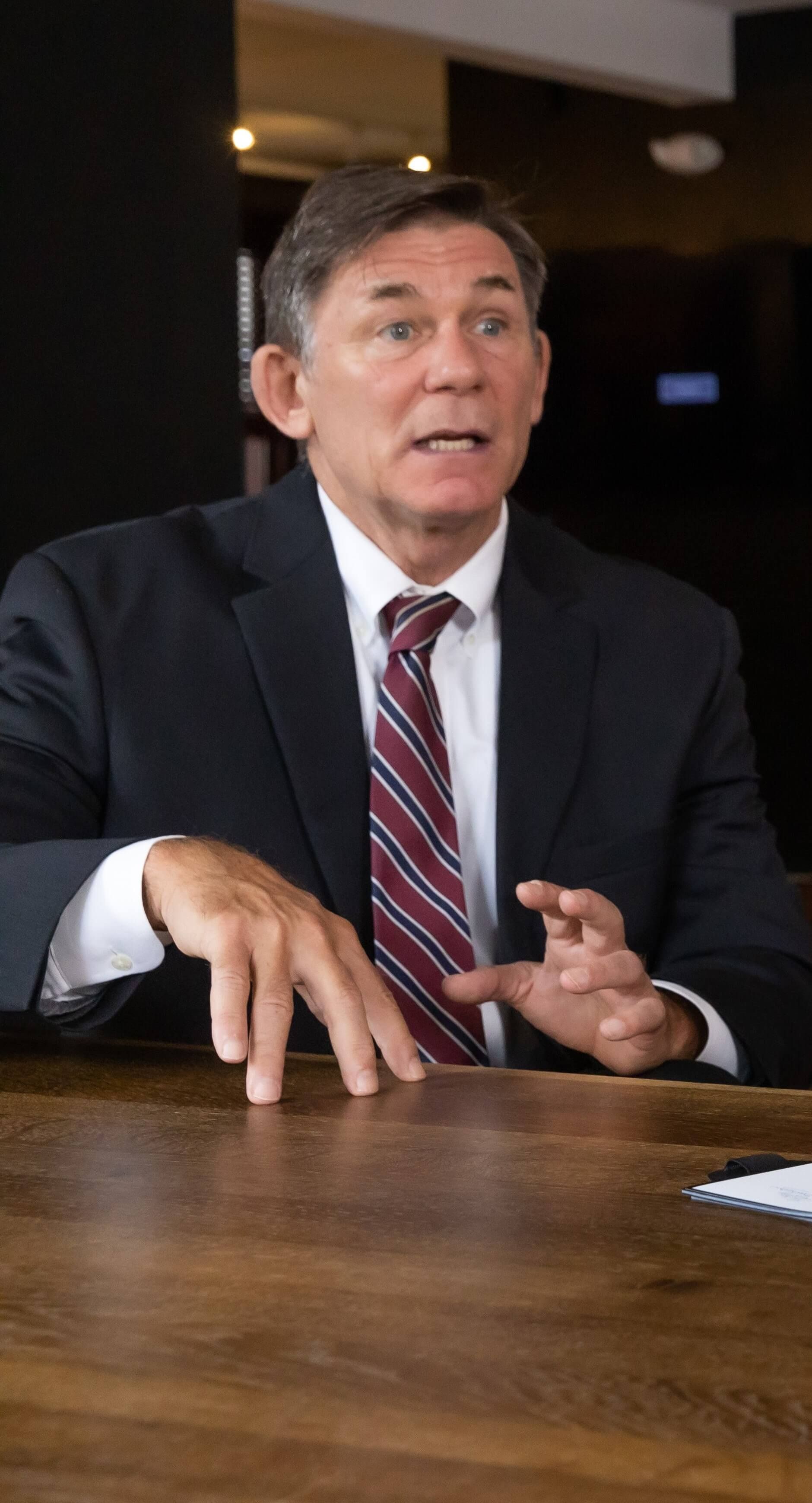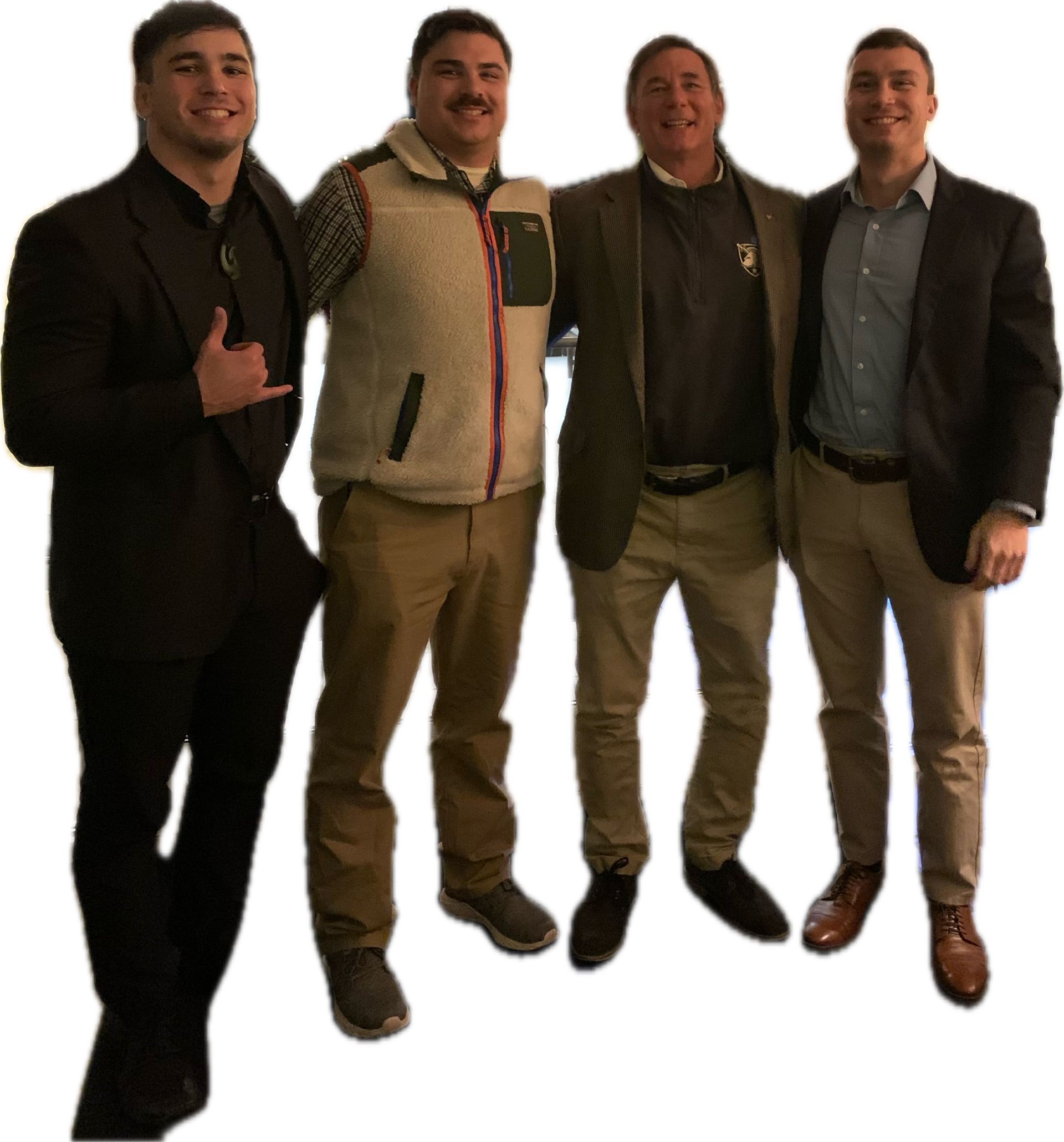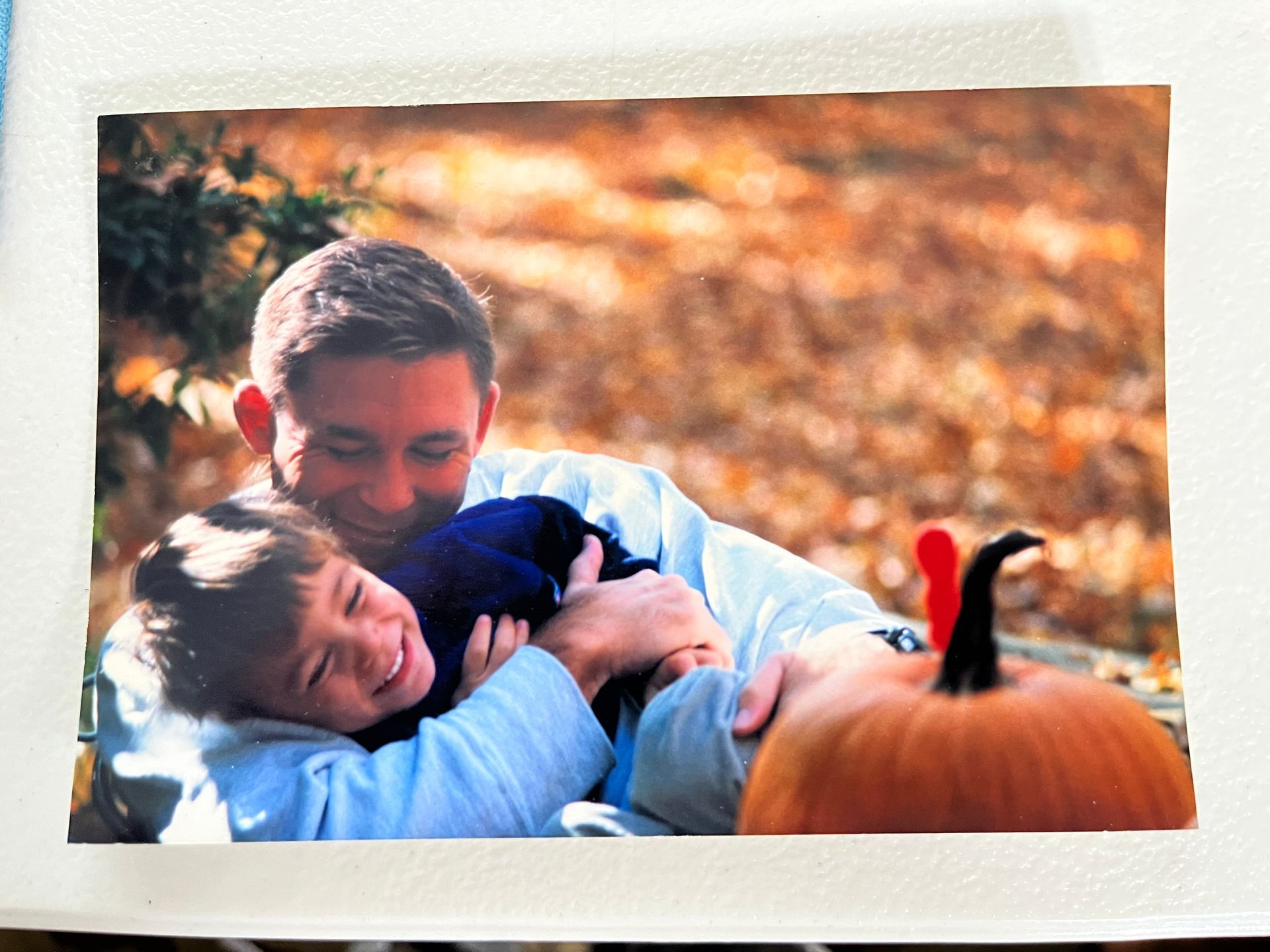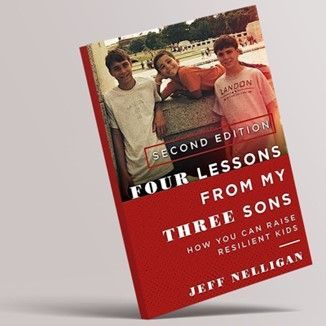Farewell to Smitty, a different kind of casualty of war / By Jeff Nelligan, Richmond Times-Dispatch / May 31, 2022
It was a small cemetery reached by an unpaved country road near Hebron, a Maryland town named after the city south of Jerusalem known as a burial ground for prophets.
Ten years ago this month my old platoon leader, U.S. Army Master Sergeant Stephen “Smitty” Smith was buried with full military honors - four soldiers in dress blue uniforms carrying a flag-draped casket while a volley of shots were fired and Taps sounded. Alas, it’s a ritual that has been carried out many times since Smitty’s funeral.
Smitty’s military career spanned a quarter century of American conflict - the Cold War, post-Cold War European turmoil and Islamic jihad. He was in Germany at Bad Aibling Station in 1985 as an enlisted soldier serving with a detachment intercepting Soviet and East German transmissions. He left active service, went to college and then joined the Maryland National Guard where I met him in the 629th Military Intelligence Battalion, a Cold War-focused unit which exists no more. The First Gulf War in 1991 passed over the battalion but then there was a need for troops to police the turbulent Balkan states. Smitty volunteered in 1999 and deployed to Bosnia for more than a year.
Then came 9/11 and because of the wars in Afghanistan and Iraq, manpower was stretched worldwide and in 2003 Smitty deployed again with the National Guard when the battalion sent a company of solders to Kosovo.
Smitty served many years as a Non-Commissioned Officer (NCO), whose creed rightly establishes them as the “Backbone of the Army,” the human bridge between officers and enlisted soldiers. Says the creed: “My two basic responsibilities will always be uppermost in my mind—accomplishment of my mission and the welfare of my Soldiers.” A simple but a profound leadership charge.
I saw those NCO leadership qualities up close as an enlisted Army Reservist then Army Guardsman for 14 years. And yet, I still find it difficult to properly explain to my non-service peers the deep military ethic behind such leadership - the sense of duty and loyalty, the cohesion of diverse units (my battalion was majority-minority) and the camaraderie that fostered performance and accountability.
Of course, compared to the vast majority of servicemen and women, my military service was modest, mostly composed of maintaining Humvees, cleaning weapons, and performing administrative tasks. However, my three sons are active-duty military officers; two of them lead dozens of enlisted men and women and work with complex equipment (some of it lethal) worth hundreds of millions of dollars and have been in tight situations that are unfathomable to their non-military peers. My sons depend heavily on the Smittys of this world.
Even after the grind of patrols in Kosovo Smitty hung in there and in 2007 deployed to Iraq to work in an intelligence role, the same job he’d had at Bad Aibling Station 22 years and several new world orders prior.
He came back a year later and his closest friends immediately knew something was wrong. He isolated himself and when he did emerge, he was erratic in behavior and a changed man. He hadn’t been in combat in Iraq; the closest to danger he’d come was when one evening several Iraqi soldiers on his base haphazardly fired hundreds of rounds into the sky and dozens of bullets rained down through a large tent in which Smitty was attending a briefing, injuring several soldiers.
At the beginning of 2012, he was found dead in his home of “natural causes” according to the Anne Arundel County coroner. At the funeral, his mother was defiant that “the war killed my son.” His sister insisted it was PTSD from Iraq, somehow amplified by his previous two deployments.
A dozen guys from the old unit gather in the cemetery parking lot after Smitty’s burial, smoking cigarettes and drinking coffee and all of us are still shaken by the anger and rage of his Mom and sister. None of us knew what exactly had happened. And as with all guys who’ve served closely in a military unit, there was no lack of candor. One senior NCO, a real hardass though grudgingly admired, had driven 130 miles that morning to Hebron and he said, “Look, guys, you all know Smitty didn’t really like me at all and I didn’t really like him. We had some real blowups in Kosovo and at Victory [Camp Victory in Iraq] and all those rounds through the tent put us even more on edge. But I knew he respected me and I respected him.”
Regret was the dominant sentiment. Why hadn’t we made more of an effort to see Smitty? To all these guys, mostly vets with an experienced outlook on service, it was a mystery. One thing though: The anger of his mom and sister pounded in our heads.
The U.S. Department of Veterans Affairs notes that Post-Traumatic Stress Disorder was a “significant public health problem in Operation Enduring Freedom and Operation Iraqi Freedom (OEF/OIF) deployed and non-deployed Veterans” with studies that show “15.7% of OEF/OIF deployed Veterans screened positive for PTSD compared to 10.9% of non-deployed Veterans. Overall, 13.5% of study participants screened positive for PTSD.” For the National Guard, the PTSD number is 14.5 percent of deployed troops.
The U.S. Department of Defense Casualty Status report for Iraq and Afghanistan still updated weekly, lists 4,431 U.S. deaths in Iraq and 2,352 in Afghanistan.
On this Memorial Day, we honor the more than 1.1 million men and women who are listed as the casualties of all the wars fought by America. But as one of my old battalion comrades – himself an NCO - said in the cemetery outside Hebron, sometimes there can be a different kind of casualty of war.
____________
Jeff Nelligan is the author of "Four Lessons from My Three Sons - How You Can Raise Resilient Kids"(https://www.amazon.com/Four-Lessons-Three-Sons-Resilient/dp/B0C9SB2NLX) and lives in Annapolis, Maryland,


